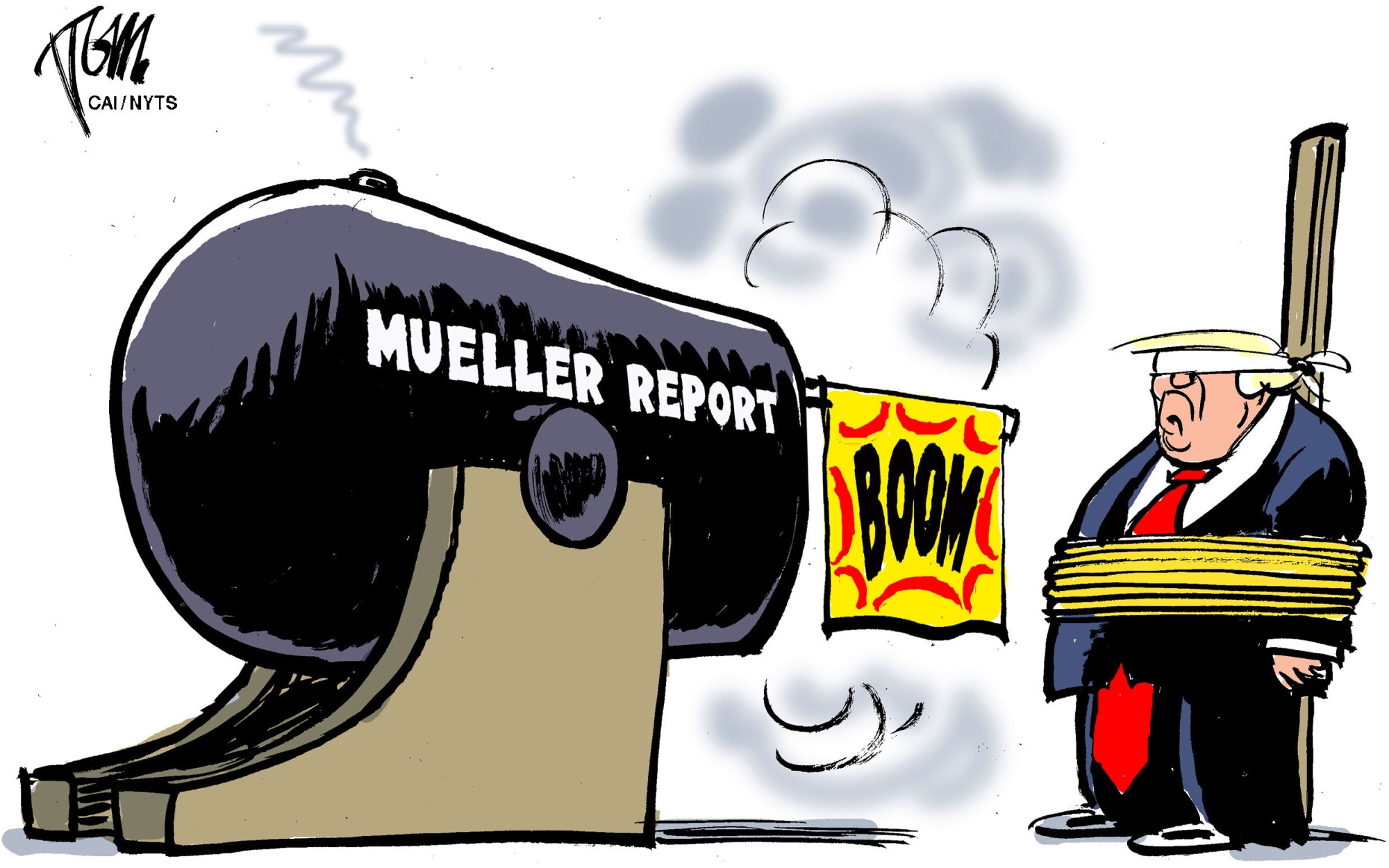Special counsel Robert Mueller's report is a gift to the nation, which now knows what was already a reasonable surmise: that its chief executive's unlovely admiration for a repulsive foreign regime — Russian President Vladimir Putin's — is more a dereliction of taste and judgment than evidence that he is under that regime's sway. The report is an even larger gift to the nation because it might help stabilize the Democratic Party — if the party reacts more reasonably to it than most of the party's most conspicuous presidential candidates have been reacting to the political stimuli of 2019. What Mueller's report makes possible is something like a normal presidential election in 2020.
After thousands of hours of cable television obsessing about Mueller's report in advance of it, with most of the obsessives basing their speculations on less than the reading of tea leaves or of chicken entrails, and most of the obsessives grinding partisan axes, it is difficult, but important, to remember two things. First, before Mueller was appointed special counsel, it was indisputable that Russia hacked American emails as part of its activities to work for Donald Trump's election. Second, while Mueller investigated these activities, the accusation of 2016 collusion between professional Russian operatives and the ramshackle Trump campaign apparatus was already implausible because Russia could pursue its ends without coordinating its activities with a campaign rife with lowlifes and bottom-of-the-barrel Republican operatives.
The report comes to no conclusion about whether Trump intended to obstruct justice. This agnosticism is, however, a politically nullity: Voters are unlikely to care what the president intended when he used a constitutional power (e.g., firing the FBI director) or indulged his incontinent anger (rhetorically and on Twitter) during an investigation into an alleged crime he did not commit.



